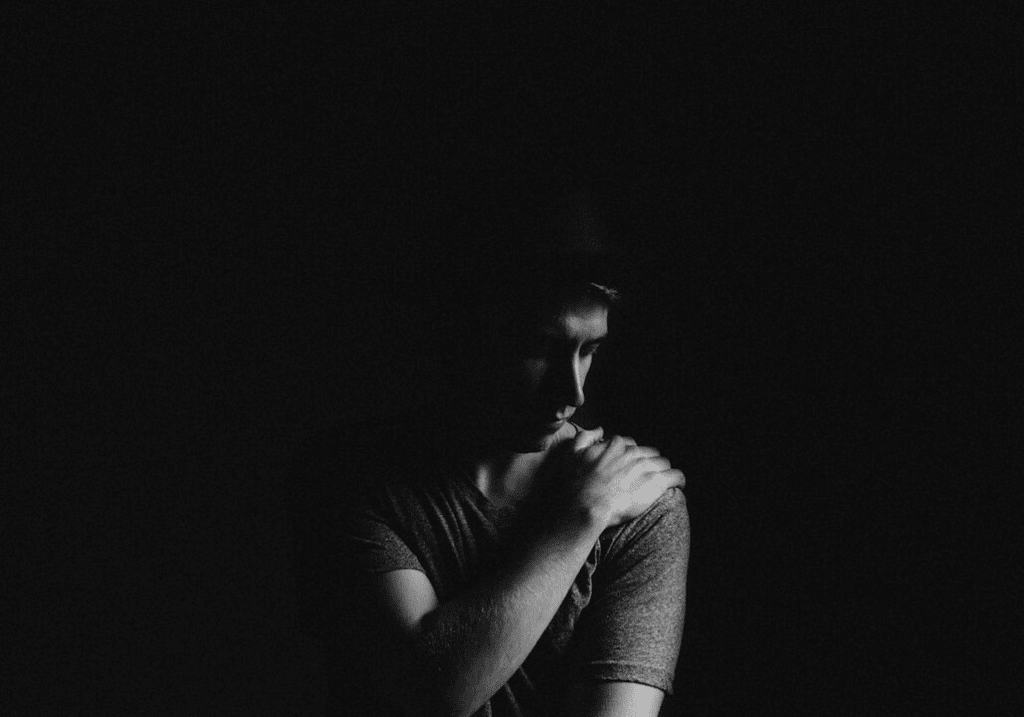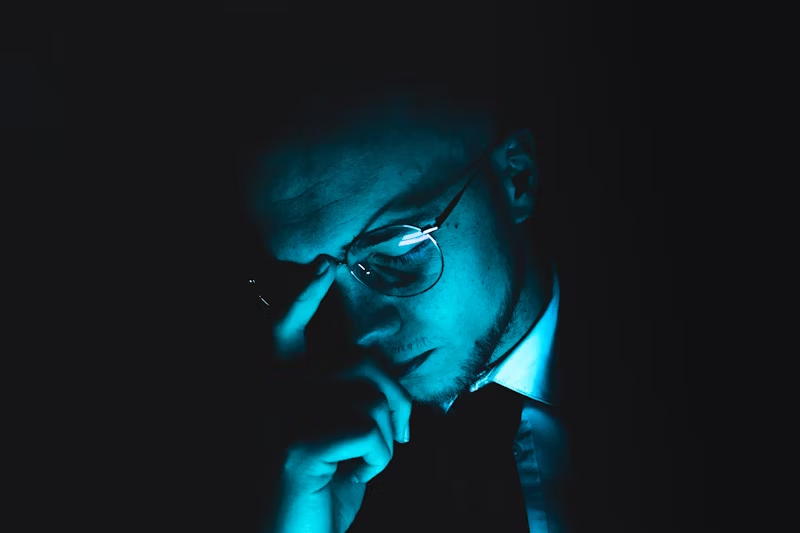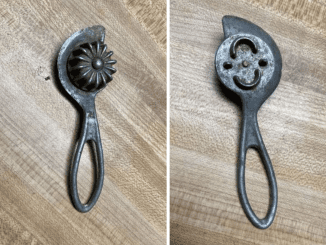For many, the transition from day to night doesn’t just bring darkness—it also brings an intensification of anxiety. Why do so many of us find that our anxiety worsens just as we’re getting ready to sleep? Mental health experts have delved into this phenomenon and offer several explanations and strategies to help manage these distressing nighttime anxiety spikes.
The Silence of the Night: A Breeding Ground for Anxiety

One of the primary reasons anxiety may worsen at night is the stark contrast between the daytime hustle and the nighttime quiet. Professor Ivo Vlaev, a behavioral psychologist, notes, “During the day, our minds are often preoccupied with tasks that require our attention—whether it’s work, social activities, or daily chores. These distractions can help keep anxious thoughts at bay.” At night, these distractions diminish, and the mind has more space to ruminate on unresolved issues and worries. This shift can cause minor concerns to feel magnified, leading to increased anxiety.
The Impact of Physical and Mental Fatigue
By evening, both the body and mind are typically fatigued from the day’s activities. This fatigue can impair our ability to regulate emotions effectively. “As we become tired, our coping mechanisms and ability to manage stress diminish,” explains Vlaev. This weakened state can make it more challenging to handle anxiety, allowing it to grow unchecked as bedtime approaches.
Hormonal Fluctuations Influence Anxiety
Hormones play a significant role in regulating our mood and stress levels. Cortisol, the body’s primary stress hormone, naturally rises in the early morning to help us wake up. However, individuals experiencing stress or anxiety might have elevated cortisol levels at night, which can keep the mind alert and make relaxation difficult. Clinical psychologist Charissa Chamorro points out, “For those with chronic stress or anxiety disorders, these hormonal imbalances are exacerbated, leading to heightened anxiety at night.”
Environmental Triggers: Darkness and Quiet
The nighttime environment itself can also exacerbate feelings of anxiety. Darkness and quiet can sometimes create a sense of isolation and vulnerability. “Nighttime can evoke a feeling of loss of control and the uncertainty of not knowing when sleep will come, which can make us feel helpless and increase anxiety,” Vlaev adds. Research from the International Journal of Psychophysiology supports this, showing that even individuals without diagnosed anxiety disorders can experience heightened fear responses at night due to environmental factors.
The Cycle of Anxiety and Sleep Deprivation
The relationship between anxiety and sleep is complex and often cyclical. Anxiety can lead to sleep disturbances, which in turn can lead to more anxiety about sleep itself. Chamorro explains, “Worrying about sleep can lead to further sleeplessness, creating a vicious cycle that can be hard to break.” This cycle is exacerbated by lifestyle choices such as caffeine consumption or excessive screen time before bed, which can further disrupt sleep patterns and contribute to nighttime anxiety.
Strategies for Managing Nighttime Anxiety
Understanding the factors that contribute to nighttime anxiety is the first step toward managing it. Simple lifestyle changes, such as avoiding stimulants like caffeine late in the day and minimizing screen time before bed, can have a significant impact. Additionally, establishing a calming bedtime routine can help signal to your body that it’s time to wind down. Techniques such as deep breathing, meditation, or gentle yoga can also aid in reducing anxiety before bed.

Creating a comfortable sleep environment that feels safe and relaxing is also crucial. This might include using blackout curtains to minimize light, or playing soft background noise or white noise to reduce the impact of startling sounds.
Conclusion: Empowering Yourself Against Nighttime Anxiety
While anxiety can seem more daunting as the night approaches, understanding why anxiety amplifies at night and employing strategies to cope with it can make a significant difference. By addressing the root causes and modifying nighttime routines, it’s possible to reduce the impact of anxiety and improve sleep quality. Remember, if nighttime anxiety becomes overwhelming, it may be beneficial to seek help from a mental health professional to develop more personalized strategies for managing anxiety.


